Individual Change

Can using climate-friendly products really make a difference in combating climate change ?
Can Using Climate-Friendly Products Really Make a Difference in Combating Climate Change? Understanding Climate-Friendly Products: Clarification of what constitutes climate-friendly products, which are designed to have a lower environmental impact than their conventional counterparts. Individual Actions and Collective Impact: Small Changes, Big Results: The cumulative effect of individual actions can lead to significant environmental benefits, such as reduced carbon emissions and lowered resource depletion. Market Influence: Consumer choices drive market demand for eco-friendly products, encouraging businesses to adopt sustainable practices. Limitations and Considerations: Scale of Impact: Personal choices are essential but must be part of a broader strategy for addressing climate change effectively. False Sense of Accomplishment: Risk of individuals feeling they have done enough by using a few eco-friendly products. Cost and Accessibility: Potential barriers to adoption due to higher costs or limited availability. Conclusion: Using climate-friendly products can make a difference in combating climate change, but it is one piece of a larger puzzle that requires widespread adoption, innovation, and systemic change.

Can individual actions significantly contribute to addressing climate change from an ethical standpoint ?
From an ethical standpoint, individual actions can significantly contribute to addressing climate change. This is because every individual has a responsibility to take care of the environment and protect it for future generations. Here are some ways in which individual actions can make a difference: - Reducing Carbon Footprint: One of the most effective ways to address climate change is by reducing our carbon footprint. This can be done by making small changes in our daily lives, such as using public transportation or carpooling instead of driving alone, turning off lights and electronics when not in use, eating less meat and more plant-based foods, and buying products with less packaging and recycling whenever possible. By making these changes, we can reduce our carbon emissions and help slow down the effects of climate change. - Supporting Renewable Energy: Another way individuals can contribute to addressing climate change is by supporting renewable energy sources. This can be done by installing solar panels or wind turbines on your property (if feasible), switching to a green energy provider that uses renewable energy sources, and encouraging your local government to invest in renewable energy projects. By supporting renewable energy, we can reduce our reliance on fossil fuels and help transition to a cleaner, more sustainable energy system. - Educating Others: Finally, one of the most important things individuals can do to address climate change is to educate others about its severity and urgency. This can be done by sharing information about climate change with friends and family, attending protests or rallies to raise awareness about the issue, and writing letters to elected officials urging them to take action on climate change. By educating others, we can spread awareness about the issue and encourage more people to take action to address it.

What is the role of individuals in addressing climate change and environmental degradation ?
This article discusses the role of individuals in combating climate change and environmental degradation. It highlights the cumulative impact of individual actions, their potential to inspire others, and the political pressure they can exert. The article provides practical steps individuals can take, such as reducing their carbon footprint, supporting renewable energy, waste reduction and recycling, advocating for environmental policies, and spreading awareness. It emphasizes that collective efforts can make a significant difference in creating a more sustainable future for our planet.

Can team sports contribute to mental rejuvenation more than individual sports ?
Team sports may contribute more to mental rejuvenation than individual sports due to increased social interaction, motivation, and sense of belonging. However, individual preferences vary, and some people may find greater mental rejuvenation through individual sports or other activities that bring them joy and fulfillment.

How can team sports help in individual skill development ?
Team sports contribute significantly to individual skill development by improving communication skills, enhancing leadership abilities, increasing self-confidence, bettering time management, improving social skills, promoting physical fitness and coordination, providing opportunities to learn from mistakes, and fostering adaptability.

How does team sports impact mental health compared to individual sports ?
This article explores how team sports impact mental health compared to individual sports. It highlights the social support and belongingness provided by team sports, which can reduce feelings of isolation and loneliness. The article also discusses how team sports promote accountability and responsibility, helping individuals develop discipline and self-control. Additionally, it emphasizes the importance of goal setting and achievement in team sports, which can boost self-esteem and confidence. Overall, the article concludes that team sports have a significant impact on mental health compared to individual sports due to their social aspect.

How do individual versus team sports impact self-esteem in young people ?
The text discusses the impact of individual versus team sports on self-esteem in young people. It outlines key points such as the focus on personal growth and discipline in individual sports, and the social support and collaboration learned in team sports. The benefits of each type of sport are also highlighted, including increased autonomy and clear feedback from individual sports, and social skills development and resilience from team sports. A comparative analysis is provided, discussing the pros and cons of each type of sport in relation to self-esteem. The conclusion suggests that both types of sports can positively impact self-esteem, but finding the right fit for each individual is crucial.

Is there a difference in mental health benefits between individual and group exercises ?
Exercise plays a vital role in maintaining good mental health, with both individual and group exercises offering unique benefits. Individual exercises provide flexibility, focus, and personal challenge, while group exercises offer social support, motivation, and accountability. Both types of exercise have been shown to reduce stress, anxiety, and depression while improving mood, self-esteem, and cognitive function. Ultimately, finding an activity that you enjoy and can consistently incorporate into your lifestyle is key to maintaining good mental health through exercise.

How do individual versus team sports differ in their impact on child development ?
Individual sports foster self-reliance and technical mastery, while team sports emphasize social skills and emotional intelligence. Both have unique benefits for child development, and the choice should consider the child's personality and desired skill development. A combination of both might provide the most well-rounded experience.

How do the principles of sports biomechanics differ between individual and team sports ?
This text discusses the principles of sports biomechanics in individual and team sports. It highlights the differences in kinematics, kinetics, and coordination between the two types of sports. In individual sports, there is a focus on precision, technique optimization, and personal performance, while team sports emphasize strategic interactions, group coordination, and adaptability to complex game situations. The text concludes by emphasizing the importance of understanding these distinctions for coaches and athletes to tailor their training approaches to best suit the specific demands of their chosen sport.

What role do individuals play in achieving the goals of energy conservation and emission reduction policies ?
The article discusses the critical role of individuals in achieving energy conservation and emission reduction policies. It emphasizes the importance of individual action, highlighting the collective impact of small changes and the potential for behavioral change. The article provides various ways individuals can contribute, such as reducing energy consumption, reducing waste, supporting renewable energy, and advocating for change. It concludes by emphasizing the power of individuals to bring about change and safeguard the planet for future generations.

What is the impact of climate change on environmental consciousness ?
Climate change has significantly influenced environmental consciousness, leading to increased awareness, changes in behavior, community action, and a deeper sense of empathy and ethics. This shift is evident in individual lifestyle choices, policy influences, grassroots movements, and global collaborations, all aimed at mitigating the impacts of climate change and fostering a more sustainable future.
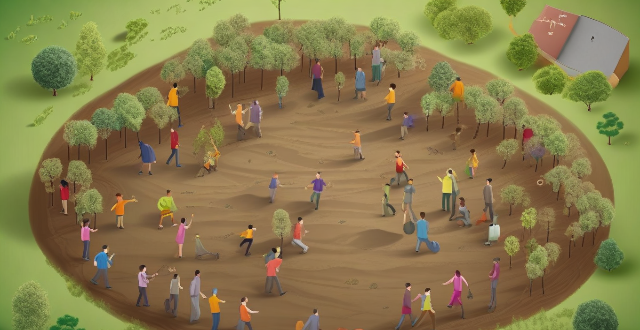
What role does sociology play in understanding and addressing climate change ?
Sociology plays a crucial role in understanding and addressing climate change by analyzing the social, cultural, and economic factors that contribute to the problem. Sociologists study social structures and norms, power dynamics and inequality, culture and ideology, and their impact on individual behavior related to climate change. They also conduct research and collect data on various aspects of climate change, educate the public about its social implications, analyze existing policies, advocate for new ones that prioritize social justice and equity, and collaborate with other disciplines to address climate change holistically. By identifying potential areas for intervention and generating innovative solutions, sociologists can help create a more equitable and sustainable future for all.

How does climate change affect consumer behavior ?
Climate change is affecting consumer behavior by increasing environmental awareness, changing shopping habits, driving a shift towards green energy, promoting sustainable food choices, and inspiring advocacy and activism. As consumers become more conscious of their impact on the environment, they are making changes in their purchasing habits to reduce their carbon footprint. Businesses that prioritize sustainability will be better positioned to succeed as consumers continue to make eco-friendly choices.

How can individuals contribute to the success of climate policies ?
Climate change is a pressing issue, and individuals can contribute to the success of climate policies by reducing their carbon footprint, supporting sustainable practices, advocating for change, educating themselves and others, and making eco-friendly lifestyle choices. By taking these actions, individuals can collectively help protect the planet for future generations.

Can ESG principles help mitigate climate change ?
ESG principles, which stand for Environmental, SocialESG principles, which stand for Environmental, Social, have become increasingly important in These principles aim to encourage companies to operate in a more sustainable and socially responsible manner. In this context, it is worth exploring whether these principles can help mitigate climate change. The environmental aspect of ESG focuses on reducing the negative impact of business operations on the environment. This includes reducing greenhouse gas emissions, conserving natural resources, and minimizing waste generation. By promoting these practices, ESG principles can contribute to mitigating climate change in several ways: * Reducing Carbon Emissions: Companies that prioritize environmental sustainability are likely to reduce their carbon footprint by using renewable energy sources, improving energy efficiency, and investing in low-carbon technologies. This can help lower global greenhouse gas emissions, which are a major driver of climate change. * Conserving Natural Resources: By promoting sustainable resource management, ESG principles can help reduce deforestation, protect biodiversity, and conserve water resources. These actions can help maintain the health of ecosystems that play a crucial role in regulating the Earth's climate. * Minimizing Waste Generation: Encouraging companies to adopt circular economy models and reduce waste generation can help reduce the amount of greenhouse gases produced during waste disposal processes. Additionally, recycling and reusing materials can help conserve natural resources and reduce the need for new raw material extraction, further contributing to climate change mitigation. The social aspect of ESG focuses on promoting fair labor practices, human rights, and community involvement. While these principles may not directly address climate change, they can indirectly contribute to mitigating its effects by fostering a sense of corporate responsibility and encouraging companies to invest in their communities. This can lead to increased awareness and action around climate change issues, as well as support for policies and initiatives aimed at addressing the problem. The governance aspect of ESG emphasizes transparency, accountability, and ethical behavior within a company's management structure. By promoting good governance practices, ESG principles can help ensure that companies are held accountable for their environmental impact and are more likely to adopt sustainable business strategies. This can lead to increased transparency around carbon emissions reporting, better alignment between corporate goals and climate objectives, and improved stakeholder engagement on climate-related issues. In conclusion, ESG principles can certainly help mitigate climate change by promoting environmentally sustainable business practices, fostering a sense of corporate responsibility, and ensuring transparency and accountability within companies' management structures. However, it is important to note that these principles alone may not be sufficient to fully address the complex challenges posed by climate change. A comprehensive approach involving government policies, international cooperation, and individual actions will also be necessary to achieve meaningful progress in mitigating the effects of climate change.

How can individual athletes contribute to environmental conservation efforts through their lifestyle choices ?
Individual athletes can contribute to environmental conservation through eco-friendly habits and sustainable practices, such as reducing energy consumption, making conscious transportation choices, adopting a sustainable diet, conserving water, reducing waste, and engaging in advocacy and education. These actions not only help the planet but also inspire others to follow their lead, creating a ripple effect of positive change for the environment.
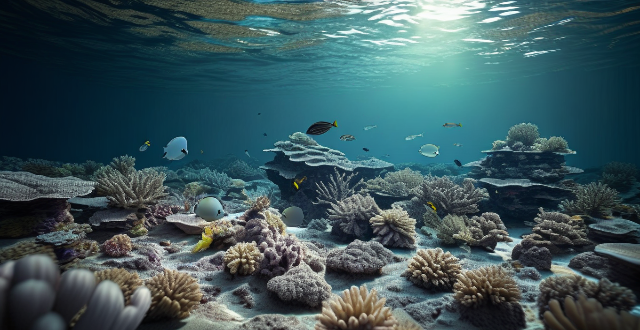
Why is it important for individuals to take action on climate change ?
Climate change is one of the most pressing issues facing our planet today, caused by human activities such as burning fossil fuels and deforestation. Taking action on climate change is crucial for individuals due to its impacts on health, economy, environment, social justice, and moral responsibility. By making small changes in daily lives and advocating for systemic change, everyone can play a role in addressing this urgent issue.

Can carbon offsetting be used as a substitute for government action on climate change ?
The article discusses the concept of carbon offsetting and its potential as a substitute for government action on climate change. Carbon offsetting involves investing in projects that reduce or remove greenhouse gases from the atmosphere, such as renewable energy sources and reforestation. While it has advantages like individual responsibility and immediate impact, it also has limitations like not being a complete solution and lack of regulation. Government action is crucial in addressing climate change through regulation, infrastructure, and education. The conclusion states that carbon offsetting can be a useful tool, but it cannot replace government action.

How is individual income tax calculated ?
Individual income tax calculation involves determining gross income, subtracting allowable deductions, calculating adjusted gross income (AGI), identifying tax credits, calculating taxable income, applying tax rates, and considering withholding and estimated tax payments. The process varies slightly by jurisdiction but generally follows these key steps. It is recommended to consult with a tax professional or use reliable tax preparation software to ensure accuracy and maximize any applicable deductions and credits.

How can we adapt to the losses and damages caused by climate change ?
Climate change has already caused significant losses and damages, including extreme weather events, rising sea levels, and changes in precipitation patterns. To adapt to these impacts, we need to take proactive measures at individual, community, and governmental levels. Some strategies for adapting to the losses and damages caused by climate change include understanding the risks, strengthening infrastructure, promoting sustainable practices, building community resilience, encouraging innovation and research, supporting policy initiatives, fostering international cooperation, investing in natural solutions, preparing for long-term changes, and integrating adaptation into development goals. By implementing these strategies, we can build a more resilient society capable of adapting to the losses and damages caused by climate change.

Can studying the psychological effects of climate change help in developing more effective adaptation strategies ?
This article explores how understanding the psychological effects of climate change can contribute to developing effective adaptation strategies. It outlines key areas such as impact on mental health, influence on behavioral change, public perception and awareness, community resilience, and policy making processes. By addressing these areas, it is possible to create more resilient and sustainable communities in the face of climate change.
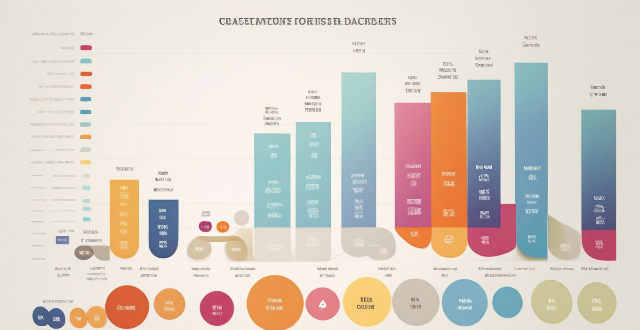
What is the significance of greenhouse gas emissions targets in climate change negotiations ?
Greenhouse gas emissions targets are vital for climate change negotiations as they set clear goals, promote international cooperation, have economic implications, protect the environment, and ensure accountability. These targets help countries measure progress, hold each other accountable, and achieve necessary reductions to prevent catastrophic climate change.

How will the concept of citizen engagement change in future cities ?
This essay explores the future of citizen engagement in cities, influenced by technological advancements like AI and IoT, social media platforms, and demographic changes. Potential changes include increased participation through virtual town halls and online voting systems, greater transparency via open data and public dashboards, and more collaborative approaches such as co-creation workshops and community-led projects. The essay emphasizes the importance of adapting strategies for engaging with citizens to ensure vibrant, inclusive, and sustainable urban communities.

How does climate change affect forest ecosystems ?
Climate change affects forest ecosystems in numerous ways, including changes in temperature and precipitation, shifts in tree species distribution, alterations in fire regimes, increased pest and disease outbreaks, and reduced carbon sequestration. These impacts can lead to heat stress for trees, altered seasonal events, changes in tree growth rates, increased wildfire risk, and even tree mortality during extreme droughts. Invasive species may also outcompete native trees, further altering the structure and function of forest ecosystems. Addressing these challenges will require a multifaceted approach that includes reducing greenhouse gas emissions, protecting and restoring forests, and adapting to changing conditions.
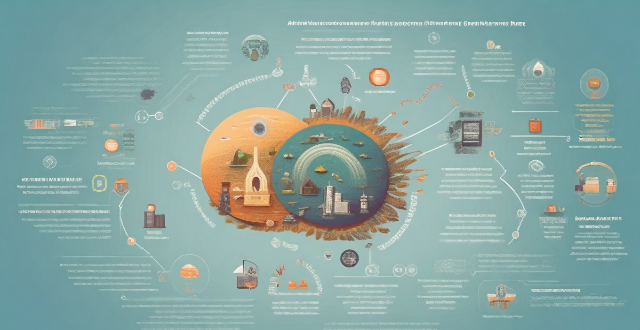
What role do education and awareness play in promoting citizen action on climate change ?
Education and awareness are crucial for promoting citizen action on climate change. They help individuals understand the science, develop skills, foster critical thinking, raise consciousness, mobilize public support, and promote behavioral change. Strategies for enhancing education and awareness include integrating climate change into curricula, community workshops, media campaigns, and partnerships with NGOs and corporations. Investing in education and awareness is essential for creating a more resilient and equitable future.

How can celebrities use their influence for social change ?
Celebrities have a unique opportunity to use their influence for social change. They can leverage their fame and platform to bring attention to important issues, inspire their fans to take action, and make a positive impact on the world. Celebrities can use their platform to raise awareness about important social issues, inspire their fans to take action by sharing their own experiences and stories related to social issues, partner with organizations that are working towards social change, use their talents and skills to support social change initiatives, and advocate for policy changes at the local, national, or international level. By doing so, celebrities can help shape laws and regulations that promote social justice and equality.
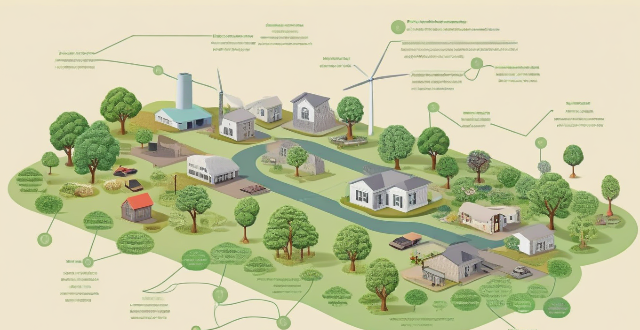
How can we address both climate change and poverty at the same time ?
Addressing climate change and poverty simultaneously requires a multifaceted approach that includes investing in renewable energy, promoting sustainable agriculture, implementing climate-resilient infrastructure, education and awareness, international cooperation, green economy initiatives, adapting to climate change, and social protection systems. By intertwining efforts to mitigate climate change with initiatives aimed at poverty alleviation, we can build a future that is both equitable and sustainable.
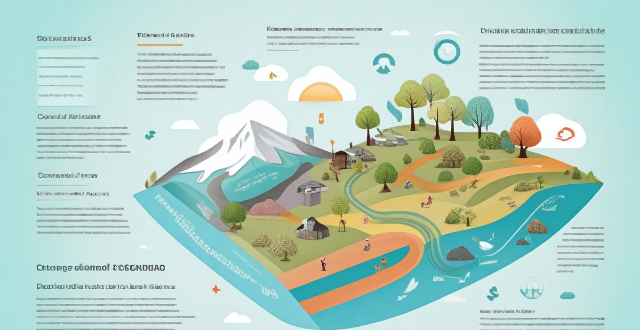
How does climate change affect education ?
Climate change impacts education through extreme weather events, health issues, food insecurity, economic challenges, social changes, and environmental degradation. These effects necessitate collaboration between educators and policymakers to develop resilient strategies for adapting to climate change.

What is the status of climate finance commitments made during climate change negotiations ?
This text discusses the status of climate finance commitments made during climate change negotiations, highlighting their importance in mitigating and adapting to climate change. It outlines key points regarding financial commitments, progress towards targets, channels for finance, and the need for improved monitoring and reporting mechanisms. The text also explores the involvement of both the public and private sectors in climate finance, as well as the challenges and opportunities that exist in this area. Finally, it emphasizes the significance of increasing transparency, improving accountability, and exploring innovative financing solutions to ensure that these commitments result in meaningful actions to address climate change.